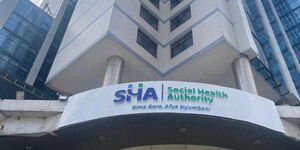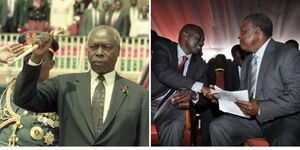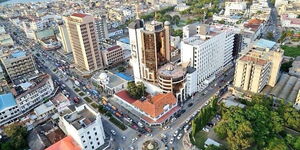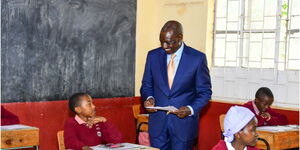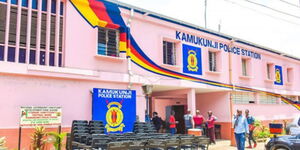As close to a million candidates prepare for the critical Kenya Certificate of Secondary Education (KCSE) examinations, the government is set to conduct 24-hour monitoring of social media to stop exam leaks.
In an announcement made on Wednesday, October 29, Interior Principal Secretary Raymond Omollo revealed that a multi-agency team had been established, adding that it operated at the National Command Center, which was domiciled at the Ministry of Interior.
PS Omollo disclosed that the team was fully activated to coordinate real-time response efforts and deter criminals intent on compromising the integrity of national examinations.
“A multi-agency team is conducting 24-hour surveillance on social media platforms to curb fake exam leaks and digital fraud,” he expressed.
“We are committed to ensuring that the integrity of our national examinations is preserved, and we have put in place such measures to guarantee we do not experience any hitches throughout the exam period,” Omollo added.
His message came after the Kenya National Examinations Council (KNEC) revealed that perpetrators of exam malpractices were using WhatsApp and Telegram to leak the exams.
As per an exam monitoring report, KNEC noted that approximately 51 Telegram channels had been identified, but only 18 had been flagged. WhatsApp was another platform to leak the exams, as per the report.
This year, at least 996,078 students will sit for the KCSE exams, with the exam set to begin on November 3 and end on November 21, running for three weeks (18 days).
Earlier in October, KNEC Chief Executive Officer David Njengere revealed a set of new regulations that would be rolled out during the administration of the 2025 national examinations, aimed at tightening security and enhancing accountability.
Among the key reforms is the introduction of personalised examination papers for all KCSE and Kenya Junior School Education Assessment (KJSEA) candidates.
According to KNEC, each paper will bear the candidate’s name and index number, and students will be required to sign both the paper and its counterfoil. Supervisors will then collect and submit the signed counterfoils separately for accountability.
In addition, Njengere announced the continued use of double collection of KCSE papers, where scripts for the second session are only released shortly before the scheduled exam, to prevent early exposure and leaks.

